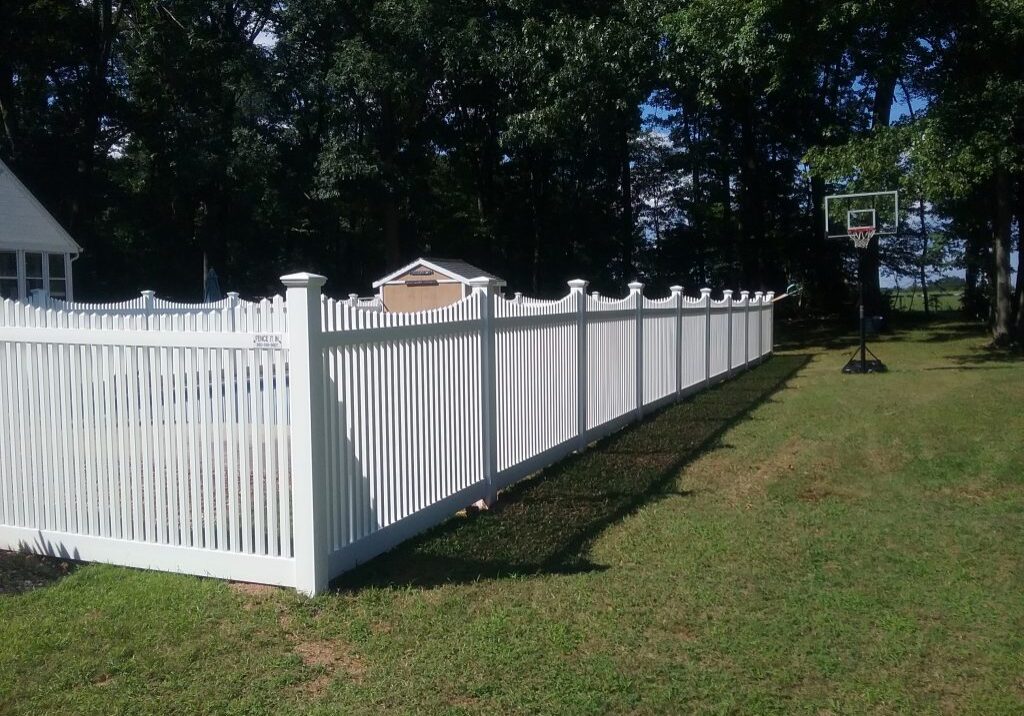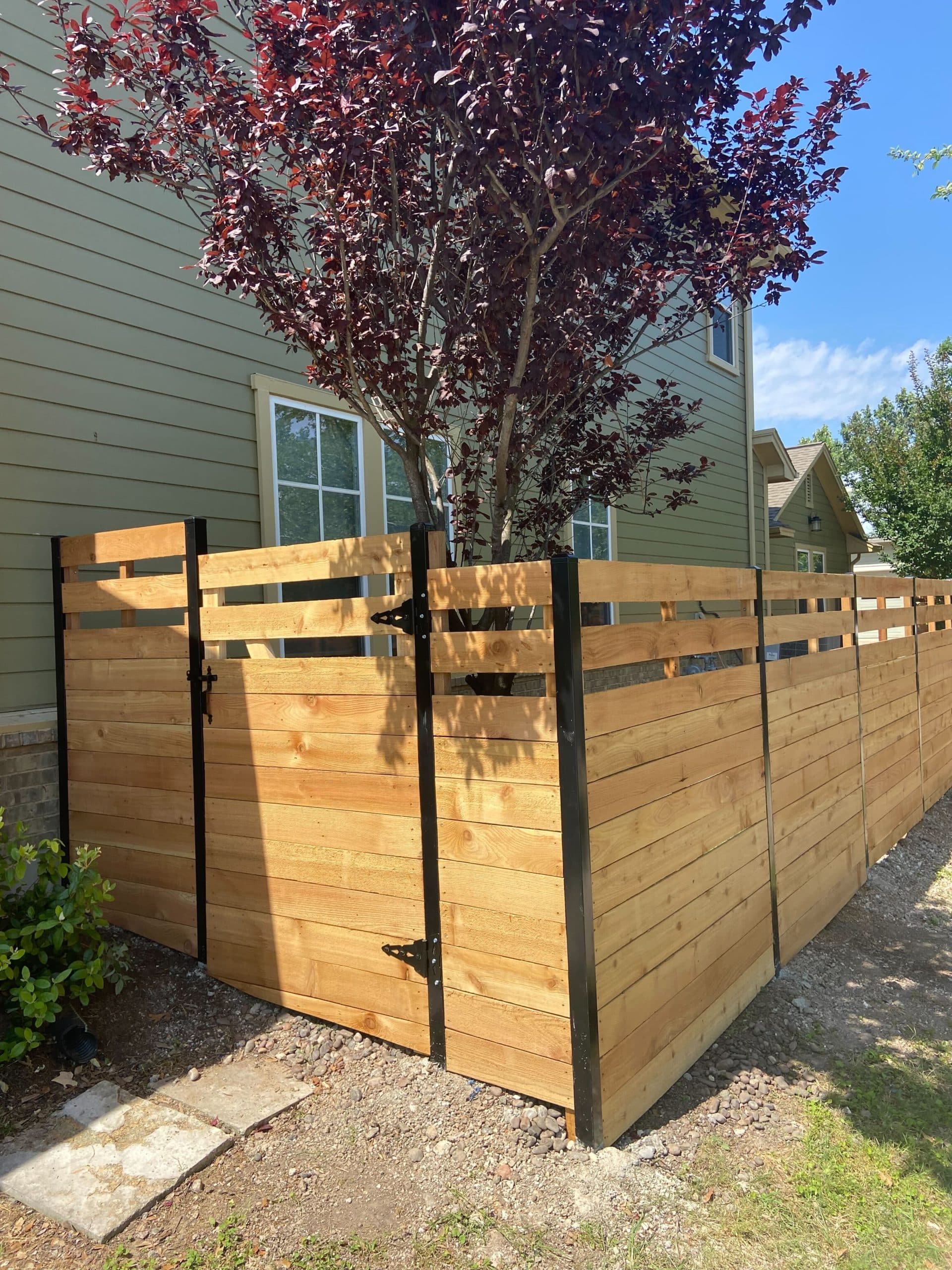Featured
If you're considering installing a fence around your property, recognizing the authorization demands in your area is essential. While developing a fencing might appear like an easy do it yourself job, numerous guidelines may regulate its construction depending on where you live. Falling short to obtain the correct licenses can result in fines, penalties, and even having to remove the fence completely. In this overview, we'll damage down the different authorizations you might need to mount a fence and how to guarantee your job stays certified with neighborhood legislations.
Why Are Permits Necessary for Fence Installment? Licenses are required to make sure that the fencing you construct stick to local building ordinance, zoning guidelines, and security requirements. These authorizations remain in location to safeguard your residential or commercial property, the buildings around you, and the setting. They ensure that the fencing will not obstruct utilities, traffic flow, or produce threats for pedestrians. Additionally, they assist keep the aesthetic and structural integrity of your community.
![]()
Sorts Of Permits You May Need. Structure Permit. A building permit is one of the most usual requirement for installing a fence. This license ensures that the structure you build adhere to local security codes and policies. You might need to obtain a structure permit if your fencing exceeds a particular height (usually around 6 feet) The local authorities will normally evaluate your plans to make sure that your fence is safe and structurally sound.
Zoning License. A zoning license guarantees that your fencing abides with these laws. Your fencing could need to be set back a particular distance from walkways or home lines.
Homeowners Organization (HOA) Authorization. If your property becomes part of a property owners organization, you might need approval before installing a fencing. HOAs commonly have rigorous policies pertaining to the type, style, and materials used for fences to preserve a consistent appearance throughout the community. The HOA might require you to send detailed strategies or demand authorization prior to installment. See to it you comply with these standards to prevent potential penalties or penalties.
Specialized Permits. In some cases, you might need specialized permits based on the area of your residential property or the nature of your fence. For example, if your home remains in a flood area, you might require additional licenses to make sure that your fencing does not block drain or water circulation. If you plan to build a fencing near an environmentally safeguarded area, you may require an unique authorization to comply with ecological guidelines.
![]()
Energy Easements and Utility Business Approvals. Some residential properties have energy easements, which are locations assigned for energy pipes, lines, or wires. Before setting up a fence, you must examine if your home has an easement. Building a fence within an easement could hinder energy maintenance or damage underground lines. You might require approval from the energy business or local authorities prior to waging the setup.
Exactly How to Identify Which Permits You Required. Consult Neighborhood Authorities. The initial step in identifying the authorizations called for is to call your regional structure division or zoning office. They can offer certain information concerning what licenses are needed for your area. Many cities have online resources or portals where you can check the demands or even obtain an authorization online.
Get In Touch With a Specialist Fencing Contractor. A regional fencing professional is usually accustomed to the permit procedure and local policies. They can assist you browse the demands and ensure that your project is certified. Many specialists also manage the authorization application procedure on your behalf, saving you effort and time.
Review Your Area's HOA Standards. If you reside in a community regulated by an HOA, make sure to evaluate their standards before obtaining any kind of permits. The HOA might need particular designs, products, or elevation restrictions for fencings within the community. Send your strategies to them for authorization before continuing.
![]()
Repercussions of Not Obtaining an Authorization. Setting up a fence without the needed permits can lead to serious effects. Possible buyers may be reluctant to purchase a residential or commercial property with an unpermitted fencing, especially if it's in offense of zoning regulations.
Verdict. Prior to installing a fence on your building, make sure you comprehend the local policies and acquire any type of necessary authorizations. Structure permits, zoning licenses, HOA authorizations, and specialized allows all play an essential role in ensuring that your fencing is safe, legal, and compliant. Making the effort to research and secure the appropriate permits will conserve you from costly mistakes and possible legal problems in the future. Whether you're preparing a personal privacy fencing or an attractive boundary, adhering to these actions will aid make the installation process smooth and problem-free.
Why Are Permits Necessary for Fence Installment? Licenses are required to make sure that the fencing you construct stick to local building ordinance, zoning guidelines, and security requirements. These authorizations remain in location to safeguard your residential or commercial property, the buildings around you, and the setting. They ensure that the fencing will not obstruct utilities, traffic flow, or produce threats for pedestrians. Additionally, they assist keep the aesthetic and structural integrity of your community.

Sorts Of Permits You May Need. Structure Permit. A building permit is one of the most usual requirement for installing a fence. This license ensures that the structure you build adhere to local security codes and policies. You might need to obtain a structure permit if your fencing exceeds a particular height (usually around 6 feet) The local authorities will normally evaluate your plans to make sure that your fence is safe and structurally sound.
Zoning License. A zoning license guarantees that your fencing abides with these laws. Your fencing could need to be set back a particular distance from walkways or home lines.
Homeowners Organization (HOA) Authorization. If your property becomes part of a property owners organization, you might need approval before installing a fencing. HOAs commonly have rigorous policies pertaining to the type, style, and materials used for fences to preserve a consistent appearance throughout the community. The HOA might require you to send detailed strategies or demand authorization prior to installment. See to it you comply with these standards to prevent potential penalties or penalties.
Specialized Permits. In some cases, you might need specialized permits based on the area of your residential property or the nature of your fence. For example, if your home remains in a flood area, you might require additional licenses to make sure that your fencing does not block drain or water circulation. If you plan to build a fencing near an environmentally safeguarded area, you may require an unique authorization to comply with ecological guidelines.

Energy Easements and Utility Business Approvals. Some residential properties have energy easements, which are locations assigned for energy pipes, lines, or wires. Before setting up a fence, you must examine if your home has an easement. Building a fence within an easement could hinder energy maintenance or damage underground lines. You might require approval from the energy business or local authorities prior to waging the setup.
Exactly How to Identify Which Permits You Required. Consult Neighborhood Authorities. The initial step in identifying the authorizations called for is to call your regional structure division or zoning office. They can offer certain information concerning what licenses are needed for your area. Many cities have online resources or portals where you can check the demands or even obtain an authorization online.
Get In Touch With a Specialist Fencing Contractor. A regional fencing professional is usually accustomed to the permit procedure and local policies. They can assist you browse the demands and ensure that your project is certified. Many specialists also manage the authorization application procedure on your behalf, saving you effort and time.
Review Your Area's HOA Standards. If you reside in a community regulated by an HOA, make sure to evaluate their standards before obtaining any kind of permits. The HOA might need particular designs, products, or elevation restrictions for fencings within the community. Send your strategies to them for authorization before continuing.

Repercussions of Not Obtaining an Authorization. Setting up a fence without the needed permits can lead to serious effects. Possible buyers may be reluctant to purchase a residential or commercial property with an unpermitted fencing, especially if it's in offense of zoning regulations.
Verdict. Prior to installing a fence on your building, make sure you comprehend the local policies and acquire any type of necessary authorizations. Structure permits, zoning licenses, HOA authorizations, and specialized allows all play an essential role in ensuring that your fencing is safe, legal, and compliant. Making the effort to research and secure the appropriate permits will conserve you from costly mistakes and possible legal problems in the future. Whether you're preparing a personal privacy fencing or an attractive boundary, adhering to these actions will aid make the installation process smooth and problem-free.
Latest Posts
Your Ultimate Guide to Hosting Private Events at The Claridge’s Hotel
Published Dec 22, 24
2 min read
What Are the Perks of Selecting a Customized Fence Style?
Published Dec 22, 24
0 min read
Just How Much Does It Cost to Set Up a Fence on a House?
Published Dec 22, 24
0 min read